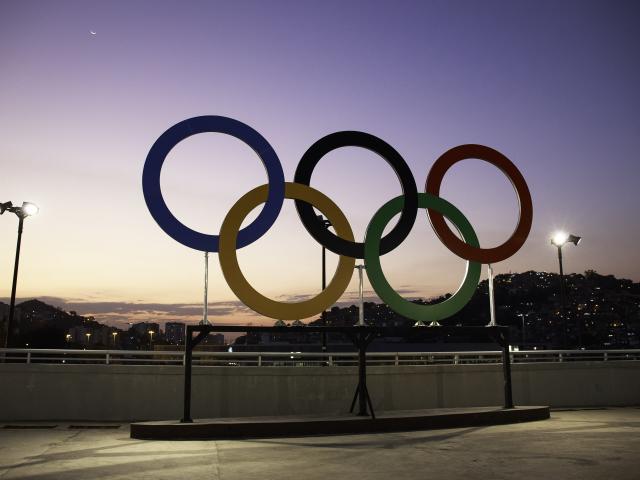
Experienced observers are warning Mr Putin will fight back, at some stage, and the International Olympic Committee (IOC) and its supporters should be wary.
The IOC found Russia, one of the world’s major winter sports powers, engaged in systemic manipulation of anti-doping rules.
Russian athletes who can prove they are clean will be invited to compete under the name Olympic Athlete from Russia (OAR) — a chance to prove themselves against the rest of the world, but not in the colours of their home country.
World-class athletes from Russia have not yet declared whether they will take part in the Olympics. Mr Putin says they are free to compete, if that is their choice, but he questions whether they will want to carry a white flag during the games.
Russia previously has been banned from the Summer Olympics and cutting it from the Winter Games inflicts a lot of hurt.
There is an adage about politics and sport not mixing, but that is never true. The United States, and many other countries, once refused to attend the Summer Games in Russia. Some of New Zealand’s finest competitors missed their chance on the world stage. Others defied the boycott, returning home to sanctions in some form or another.
Doping has been an ongoing taint on athletics and athletes for generations. Take New Zealand’s Dame Valerie Adams, as an example. Her unbeaten record across 56 internationally ranked athletics meetings between August 2010 and July 2015 may be increased to 95.
The International Association of Athletics Federations is said to be considering an extension to the doping ban on Belarussian shot putter Nadzeya Ostapchuck, which may include the period between her 2008 and 2013 Olympic disqualifications.
As a 19-year-old at her maiden games in Athens, Dame Valerie missed the top eight and the opportunity for three more puts. Four of those ahead of her have since received doping bans.
Cycling is another area in which the use of performance-enhancing supplements is rife. Lance Armstrong went from poster boy to pariah when it was eventually revealed just how much dope he took to remain at the top of his sport for so long.
American athletes are not immune from suspicion. Wonder Jamaican sprinter Usain Bolt missed his triple-triple because some of his team were taking drugs to boost their performance.
The sporting public have grown weary of so-called drug cheats sitting out bans before returning and blistering their way to gold medals on the track or in the pool. The cynicism shown by disgraced athletes in representing their countries, probably taking team places from other more-deserving representatives, is galling.
The will to win often overrides common sense and good judgement. If a Russian athlete is told to take a substance by a high-ranking official, they are very likely to agree. The IOC disciplinary commission chairman Samuel Schmid found doping was fully endorsed by the Russian sports ministry, which Mr Putin’s deputy, Vitaly Mutko, was in charge of until October 2016.
Pressure will now grow on Fifa to take action over Mr Mutko because he heads Russia’s 2018 World Cup team as president of the football union.
The IOC’s ban for subverting anti-doping rules is unprecedented, although there have been other cases in which countries have not been invited to compete. Sadly, the ban on Russia is likely to do little to dissuade athletes and their representatives from finding new and improved ways to hide the effects of their drug taking. Clean athletes will look at cheating competitors and have to remain strong to stop taking similar risks in their efforts to win.












